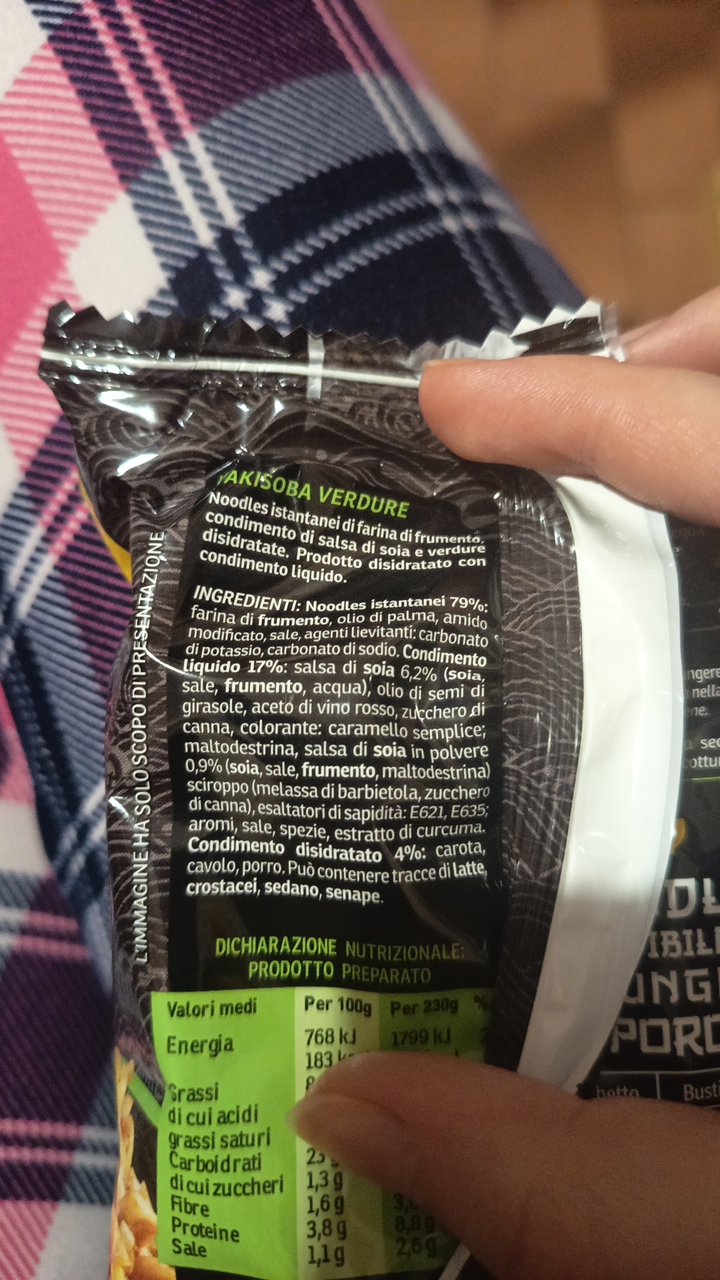
Barcode: 8000050028520
akisoba verdure
HARAM
📝 Reason: This product’s formulation includes materials that are categorically Haram according to all major Islamic schools of thought and scholarly consensus.
📄 Certificates: Product Prepared, May Contain Traces Of Milk, Crustaceans, Celery, Mustard
Ingredients:
Details
Understanding the Halal Status of Akisoba Verdure
In today’s diverse food market, ensuring that products align with dietary restrictions is essential. Akisoba Verdure, a popular instant noodle brand, has raised concerns regarding its halal status. This post will delve into the ingredient list and provide clarity on why Akisoba Verdure is classified as Haram.
What Makes Akisoba Verdure Haram?
Halal dietary laws are rooted in Islamic teachings that define what is permissible and forbidden for Muslims. Akisoba Verdure’s formulation includes an ingredient that is widely recognized as non-compliant with these laws. The primary ingredients include:
- Instant noodles 79%: This is the base of the product.
- Palm oil, wheat flour, and other starches: Considered permissible in Islam.
- Liquid seasoning and soy sauce: These ingredients raise concerns due to their complex composition.
- **Red wine vinegar**: Categorically Haram due to its alcoholic content, making this product unsuitable for Muslim consumers.
Thus, the inclusion of red wine vinegar is the key reason Akisoba Verdure fails to meet halal standards.
Ingredient Breakdown: Examining E-Numbers and Other Components
Let’s look closely at each component of Akisoba Verdure and understand their halal status:
- Instant Noodles (79%): Generally made from wheat flour and starch, which are halal.
- Wheat Flour: Considered permissible in Islam.
- Palm Oil: Free from animal products, therefore halal.
- Starch and Modified Starch: Both are acceptable as they’re derived from plant sources.
- Red Wine Vinegar: This ingredient is alcohol-based and thus Haram. Its presence in the product is a significant reason why it is unsuitable for Muslim consumers.
- Flavor Enhancers (E621, E635): Derived from yeast, often used in processed foods but may raise concerns among strict observers of halal diets.
- Vegetables (your designated carrot, cabbage, leek): These are all halal, providing nutritional benefits without compromising halal values.
Other ingredients like liquid seasoning and soy sauce are complex and potentially contain Haram components, depending on their source. Soybeans typically are halal, but processing can introduce non-halal substances.
The Brand and Certificate Context
While Akisoba Verdure is popular among instant noodle enthusiasts, the absence of halal certification is critical in this discussion. The product is labeled with notes about possible traces of milk and crustaceans, further indicating its non-halal suitability. For consumers, the lack of appropriate halal certification compounds the risks associated with its consumption.
Conclusion
In conclusion, consumers seeking halal options should be cautious regarding Akisoba Verdure. The analysis of the product indicates clear factors leading to its designation as Haram. With the inclusion of red wine vinegar, among other questionable ingredients, Akisoba Verdure should be avoided by those adhering to halal dietary guidelines. Always check the ingredients and certifications when choosing products to ensure compliance with your dietary needs.
